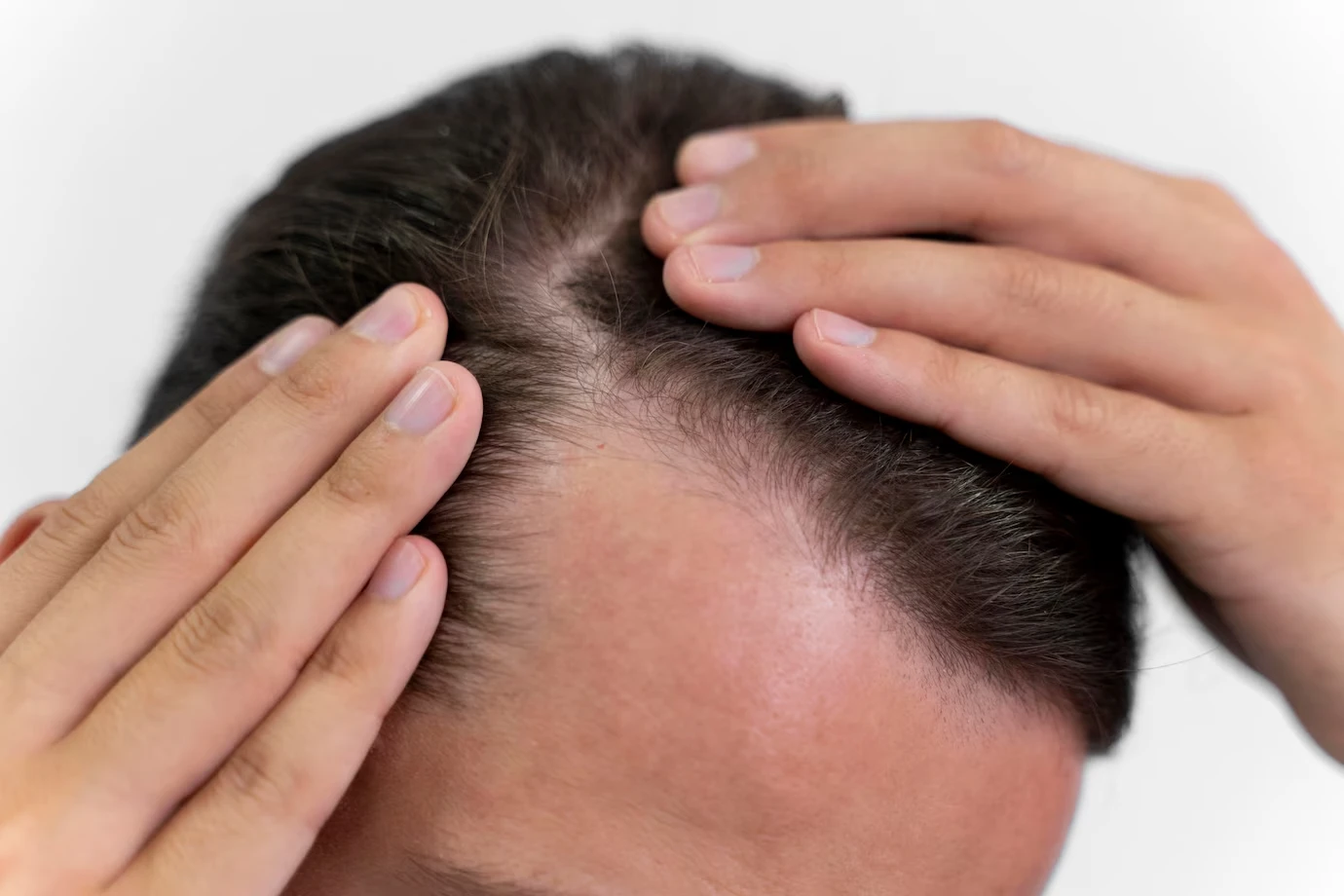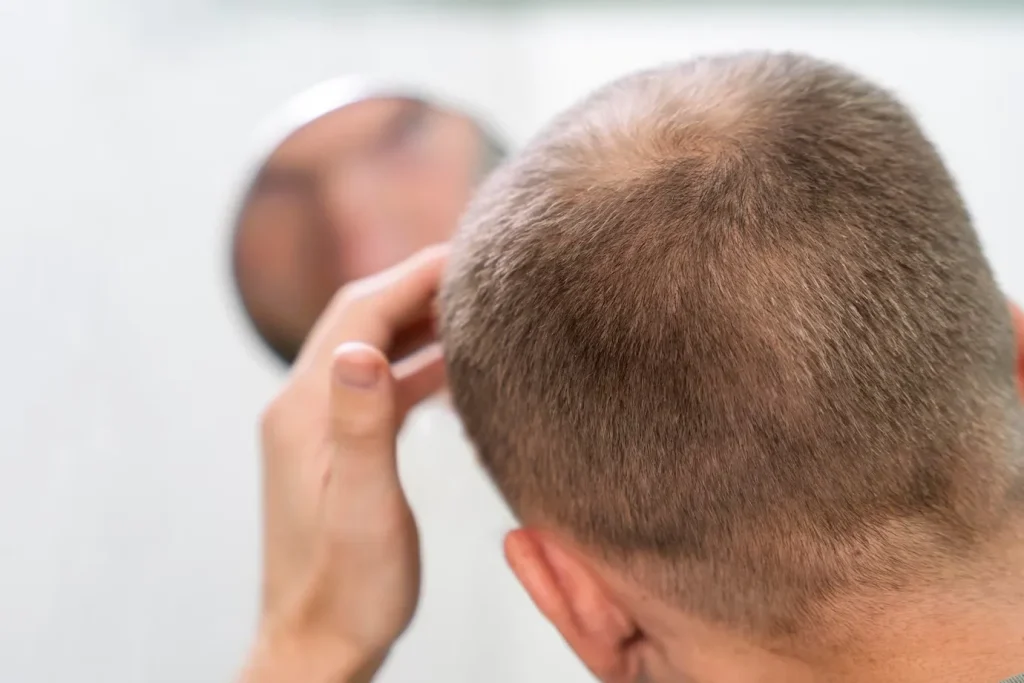Stress doesn’t just affect your mind—it can impact your body in visible ways, including your hair. Emotional or physical stress can disrupt the natural hair growth cycle, leading to sudden shedding or thinning, known as telogen effluvium.
Whether triggered by trauma, illness, or chronic anxiety, stress-related hair loss is often temporary—but only if addressed early. Learn how to identify the signs, manage the triggers, and restore your hair’s natural balance.


Childbirth, trauma, illness, grief, changes in hormones, medication or extreme diet changes are a few factors that cause severe stress on the body. Such factors are common stimulants of the condition, telogen effluvium, a process that causes excessive shedding of hair as the cycle remains in the final resting stage.
Drastic changes to diet, such as weight loss programmes, can starve the hair follicle of the necessary nutrients needed for optimal function.
This condition is often related to stress and can be inherited genetically. Sufferers may experience bald patches, 2.5 cm in size. Although it is common to encounter this process once, some may suffer on multiple occasions. Treatments are available in the form of topical solutions such as; Minoxidil. Generally, the hair loss is temporary and, many grow hair in the affected regions after a few months.


Many different types of trauma can cause the body to feel emotionally stressed. Significant life events that may qualify as major emotional stress include; loss of a loved one, heartbreak, parenting issues, work-related problems, PTSD and anxiety. As the body learns to combat these issues, it can force the hair follicles to remain in the resting phase and with regards to, telogen effluvium; result in imbalanced shedding.
If you feel that such factors are the cause of your hair loss, please consult your GP, who may refer you to a therapist or counsellor to treat the underlying cause. Those with significant, emotional stress-related hair loss, often recover with new hair growth once they feel better.
Drastic changes in lifestyle such as a car accident, childbirth, extreme caloric restriction dieting or severe illness, can influence the body’s responses of the healthy functioning of hair follicles. However, post-recovery the patient may expect to see hair loss recovery within 3-4 months of treating the underlying cause.

Proven results. Over 90% success. Trusted by thousands.

FUE hair transplant
2,704
12 months

FUE hair transplant
2,574
12 months

FUE hair transplant
1,763
12 months

FUE hair transplant
2,253
12 months

FUE hair transplant
2,434
12 months

FUE hair transplant
2,500
12 months
Please provide your details for a booking appointment.